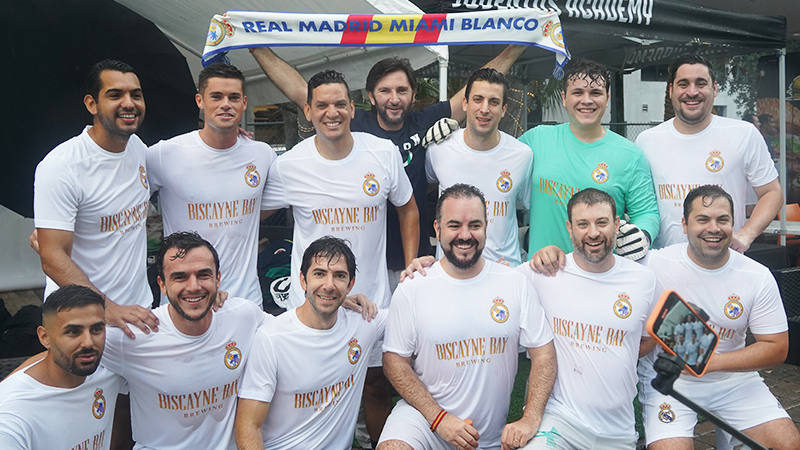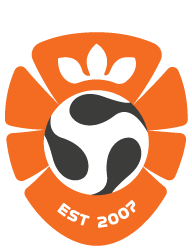
Organizing a successful soccer tournament in Miami requires meticulous planning, strategic execution, and a deep understanding of the local soccer community. Whether you’re an event organizer, a corporate team leader, or a brand looking to connect with passionate soccer fans, these soccer tournament organization tips will guide you through the process.
Imagine transforming a regular weekend into a thrilling soccer spectacle that brings together amateur players, corporate teams, and enthusiastic fans. The key to achieving this lies in mastering the art of tournament organization. From selecting the perfect venue to ensuring seamless logistics, every detail matters. By following expert advice and leveraging insights from seasoned organizers, you can create an unforgettable event that resonates with participants and spectators alike.
At Futbol Club Noise (FCnoise), we understand the passion that drives the soccer community in Miami. Our mission is to bridge the gap between brands and soccer enthusiasts, providing a unique platform for engagement and growth. In this blog post, we’ll share essential strategies and actionable tips to help you plan and execute a successful soccer tournament, ensuring a memorable experience for everyone involved.
Ready to dive into the world of soccer tournament organization? Let’s explore the key steps and strategies that will set your event apart, starting with the importance of early planning and team assembly.
Effective Planning for a Successful Soccer Tournament
Effective planning is the cornerstone of a successful soccer tournament. To ensure your event runs smoothly and leaves a lasting impression, it is essential to start with a well-thought-out plan. This section covers the initial steps, including setting goals, budgeting, and assembling a team.
By following these Soccer Tournament Organization Tips, you can create a seamless and enjoyable experience for all participants and spectators.

Setting Clear Goals
Before diving into the logistics, it is crucial to define the goals of your tournament. Are you aiming to raise funds for a cause, promote community engagement, or provide a competitive platform for local teams? Clear objectives will guide your decisions and help measure the success of your event.
Consider the following when setting your goals:
- Purpose: Determine the primary purpose of your tournament, such as fundraising, community building, or competition.
- Target Audience: Identify the groups you want to attract, such as amateur players, corporate teams, or youth leagues.
- Success Metrics: Establish criteria for success, such as the number of participating teams, funds raised, or community impact.
Creating a Detailed Budget
A comprehensive budget is essential for managing expenses and ensuring financial sustainability. Start by listing all potential costs, including venue rental, equipment, marketing, and personnel. Allocate funds for each category and include a contingency fund for unexpected expenses.
Here are key components to include in your budget:
- Venue Costs: Rental fees for fields, seating, and facilities.
- Equipment: Costs for goals, balls, uniforms, and trophies.
- Marketing: Expenses for advertising, promotional materials, and online campaigns.
- Personnel: Payments for referees, security, and volunteers.
- Miscellaneous: Contingency funds for unforeseen expenses.
Using tools like spreadsheets or budgeting software can help you track expenses and stay organized.
Assembling a Dedicated Team
Building a reliable and enthusiastic team is vital for the success of your tournament. Start by identifying key roles and responsibilities, such as event coordinator, marketing manager, and volunteer coordinator. Recruit individuals with relevant skills and experience to fill these positions.
Consider the following steps when assembling your team:
- Define Roles: Clearly outline the responsibilities of each team member.
- Recruit Volunteers: Reach out to local organizations, schools, and community groups for volunteers.
- Hold Regular Meetings: Schedule meetings to ensure clear communication and coordination among team members.
- Provide Training: Offer training sessions to equip volunteers with the necessary skills and knowledge.
Effective communication and teamwork are essential for managing the various aspects of the tournament and ensuring a smooth execution.
By setting clear goals, creating a detailed budget, and assembling a dedicated team, you lay a strong foundation for a successful soccer tournament. These initial steps are crucial for effective planning and will help you navigate the complexities of organizing a memorable event.
Logistics and Execution: Making Your Tournament Run Smoothly
Logistics play a critical role in the success of a soccer tournament. This section will cover essential logistics, including venue selection, scheduling, and communication strategies. References to competitor content will highlight best practices and common pitfalls.
Effective logistics management ensures that every aspect of your tournament runs smoothly, from the initial setup to the final whistle. Here are some key logistics and execution tips to help you organize a successful soccer tournament in Miami.
Choosing the Right Venue
Selecting the right venue is crucial for the success of your tournament. The venue should be easily accessible, have adequate facilities, and be able to accommodate the number of teams and spectators expected. Consider the following factors when choosing a venue:
- Location: Ensure the venue is centrally located and accessible by public transportation.
- Facilities: Check for amenities such as restrooms, seating, and parking.
- Field Quality: Inspect the condition of the playing fields to ensure they meet the required standards.
- Availability: Confirm the venue is available on your desired dates and has no conflicting events.
For example, the Tropical Park Soccer Fields in Miami offer excellent facilities and are a popular choice for local tournaments.
Creating a Detailed Schedule
A well-structured schedule is essential for keeping the tournament on track. Start by determining the format of your tournament (e.g., single elimination, double elimination, round-robin) and then create a detailed timeline for each match. Consider the following tips:
- Match Duration: Set clear time limits for each match, including warm-up and break times.
- Field Assignments: Assign specific fields for each match to avoid confusion.
- Buffer Time: Include buffer times between matches to account for any delays.
- Communication: Share the schedule with all teams, referees, and volunteers well in advance.
Using scheduling software can help automate and streamline this process, ensuring accuracy and efficiency.
Ensuring Effective Communication
Clear and consistent communication is vital for the smooth execution of your tournament. Utilize multiple communication channels to keep all stakeholders informed:
- Website: Create a dedicated tournament website with all relevant information, including schedules, rules, and updates.
- Email: Send regular email updates to teams, referees, and volunteers.
- Social Media: Use social media platforms to share real-time updates and engage with participants and spectators.
- On-Site Announcements: Use a PA system for important announcements during the event.
For instance, TeamSnap’s tournament tool offers an excellent way to send push notifications, in-app messages, and emails to keep everyone in the loop.
Managing Volunteers and Staff
Volunteers and staff are the backbone of your tournament. Ensure you have enough personnel to cover all necessary roles, such as referees, scorekeepers, and security. Here are some tips for managing your team:
- Recruitment: Start recruiting volunteers early and reach out to local organizations, schools, and community groups.
- Training: Provide training sessions to equip volunteers with the necessary skills and knowledge.
- Clear Roles: Assign specific roles and responsibilities to each volunteer and staff member.
- Regular Meetings: Hold regular meetings to ensure clear communication and coordination among team members.
Effective management of volunteers and staff will ensure that all aspects of the tournament are covered and that any issues are promptly addressed.
Implementing a Contingency Plan
Despite meticulous planning, unforeseen circumstances can arise. Having a contingency plan in place will help you handle any unexpected issues smoothly. Consider the following:
- Weather: Have a backup plan for inclement weather, such as indoor facilities or rescheduling options.
- Medical Emergencies: Ensure medical personnel are on-site and have a plan for handling injuries or emergencies.
- Equipment Failures: Have spare equipment and tools available in case of any malfunctions.
- Communication Breakdowns: Have alternative communication methods, such as walkie-talkies or backup phones.
By preparing for potential issues in advance, you can minimize disruptions and ensure the tournament runs smoothly.
Post-Tournament Activities: Wrapping Up and Gathering Feedback
After the final whistle blows and the trophies are handed out, the work of organizing a successful soccer tournament in Miami is far from over. Post-tournament activities are crucial for evaluating the event’s success and planning for future tournaments. This section will cover essential tasks such as gathering feedback, financial reconciliation, and post-event marketing.
Gathering Feedback
Collecting feedback from participants, spectators, and staff is vital for understanding what went well and what needs improvement. Here are some tips for creating effective feedback surveys:
- Survey Distribution: Send out surveys via email or use online survey tools like Google Forms or SurveyMonkey. Ensure the survey is accessible on mobile devices for convenience.
- Question Design: Include a mix of open-ended and multiple-choice questions to gather both quantitative and qualitative data. Ask about various aspects such as venue, scheduling, communication, and overall experience.
- Incentives: Offer small incentives, such as discounts on future events or entry into a raffle, to encourage more participants to complete the survey.
For example, a successful feedback survey might include questions like, “How satisfied were you with the venue facilities?” and “What suggestions do you have for improving the scheduling of matches?” Gathering this information will help you make data-driven decisions for your next tournament.
Financial Reconciliation
Reconciling finances after the tournament is essential for understanding the event’s financial performance and ensuring transparency. Follow these steps to manage post-tournament finances effectively:
- Expense Tracking: Use budgeting software or spreadsheets to track all expenses, including venue rental, equipment, marketing, and personnel costs. Compare these against your initial budget to identify any discrepancies.
- Revenue Calculation: Calculate total revenue from registration fees, sponsorships, ticket sales, and concessions. Ensure all payments have been received and properly recorded.
- Financial Reporting: Prepare a detailed financial report summarizing income, expenses, and net profit or loss. Share this report with key stakeholders and sponsors to maintain transparency and build trust.
For instance, using tools like QuickBooks or Excel can simplify the process of tracking and reconciling finances, ensuring you have a clear picture of your tournament’s financial health.
Post-Event Marketing
Marketing doesn’t end when the tournament does. Post-event marketing helps maintain engagement with participants and promotes future events. Consider these strategies:
- Social Media Highlights: Share photos, videos, and highlights from the tournament on social media platforms. Tag participants and sponsors to increase visibility and engagement.
- Thank You Emails: Send personalized thank you emails to participants, volunteers, and sponsors. Include a recap of the event and a teaser for future tournaments.
- Press Releases: Issue a press release summarizing the tournament’s success, notable moments, and future plans. Distribute it to local media outlets and relevant online platforms.
For example, creating a post-event video montage featuring key moments and participant testimonials can be a powerful tool for promoting future tournaments and keeping your audience engaged.
By effectively wrapping up your tournament with these post-event activities, you not only evaluate the success of the current event but also lay the groundwork for even better tournaments in the future. Remember, the key to continuous improvement lies in gathering comprehensive feedback, maintaining financial transparency, and keeping your audience engaged through thoughtful marketing efforts.
Mastering the Art of Soccer Tournament Organization
Organizing a successful soccer tournament in Miami requires dedication, strategic planning, and a keen eye for detail. By following the soccer tournament organization tips outlined in this blog post, you can ensure a memorable and efficient event that stands out in the local soccer scene.
Throughout this guide, we’ve covered essential steps from setting clear goals and creating a detailed budget to assembling a dedicated team and choosing the right venue. These foundational elements are crucial in laying the groundwork for a smooth and enjoyable tournament experience.
Key logistics, such as creating a detailed schedule, ensuring effective communication, and managing volunteers and staff, play a critical role in the seamless execution of your event. By implementing best practices and learning from seasoned organizers, you can navigate the complexities of tournament planning with confidence.
Post-tournament activities, including gathering feedback, financial reconciliation, and post-event marketing, are vital for evaluating the success of your tournament and planning for future improvements. Engaging with participants and maintaining financial transparency will help build trust and enhance your reputation as an organizer.
- Set Clear Goals: Define the primary purpose and target audience of your tournament.
- Create a Detailed Budget: Allocate funds for all potential expenses, including a contingency fund.
- Assemble a Dedicated Team: Recruit individuals with relevant skills and ensure effective communication.
- Choose the Right Venue: Select a location that is accessible, well-equipped, and available on your desired dates.
- Implement Effective Logistics: Develop a comprehensive schedule and communication plan.
- Manage Volunteers and Staff: Ensure adequate training and clear role assignments.
- Gather Feedback: Use surveys to collect insights from participants and stakeholders.
- Financial Reconciliation: Track expenses and revenue accurately to maintain transparency.
- Post-Event Marketing: Engage with your audience through social media and personalized thank you messages.
By applying these strategies, you can create a soccer tournament that not only meets but exceeds expectations. Take action today and start planning your next event with confidence. For more resources and expert advice, visit FCnoise and explore our comprehensive guides and services.
Ready to elevate your tournament organization skills? Share your thoughts and experiences in the comments below, and let’s build a vibrant community of passionate soccer organizers!
